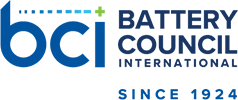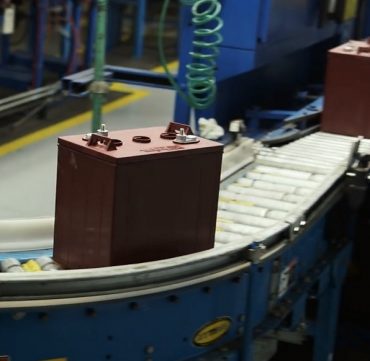Industry Experts Discuss Topics Relevant to Current Legislative Priorities
WASHINGTON – NOVEMBER 2, 2021 — Battery Council International (BCI), through its communications initiative Essential Energy Everyday, has launched a series of short webinars on subjects integral to federal policy discussions that will shape the country’s future. The content is designed to highlight ways to meet U.S. energy storage needs through domestic resources, and why supply chains, manufacturing infrastructure, minerals and battery innovation are essential to meet these goals.
The information is being offered on demand to make it accessible to viewers at a time and place of their choosing. “We know that policymakers and our stakeholders have busy schedules,” said Roger Miksad, BCI executive vice president. “Our goal is to provide them with the information they are looking for on their schedule, not ours. Just as streaming has become a preferred method for viewing television shows and movies, we believe it’s also an effective way to connect with policymakers.”
Miksad noted that during the pandemic traditional engagement with policymakers in their offices or through in-person fly-ins has been paused and that organizations like BCI are looking for more creative ways to maintain relationships.
In the first briefing, “Critical Minerals & Supply Chains for U.S. Energy Storage,” Miksad and Dr. John Uhrie, vice president, exploration, research and technical development for The Doe Run Company, discuss the role of metals and minerals for a low carbon future in the U.S. and internationally.
“The low carbon future is coming, and there’s a variety of minerals that are central to this low carbon and renewable energy future,” said Dr. Uhrie. Uhrie explained these minerals are essential to the global battery market which today is about $90 billion in value, but by 2030 will be $150 billion.
Miksad and Uhrie also examine the closed-loop manufacturing system that keeps 130 million lead batteries out of landfills each year and provides a continuous supply of recycled lead to manufacture new batteries. With a 99% recycling rate, the lead battery is the most sustainable battery chemistry available.
Future webinar topics will address the role of lead batteries in supporting the transition to electric vehicles.
The U.S. lead battery industry has an annual economic impact of $26.3 billion with more than 92,000 direct and indirect jobs across 38 states. Lead batteries are a baseline energy storage technology used in automotive, telecommunications, electric power, mining, agriculture, marine, and data centers. They are the most recycled product in the world, boasting a 99% recycling rate. Lead batteries provide 60% of the global rechargeable energy storage market, and have significant potential for even better performance to serve increasingly demanding requirements for vehicle electrification and the integration of renewable power to the electric grid.
Battery Council International is the North American trade association representing the lead-based battery manufacturing, supply, recycling and distribution companies. For more information on the association, visit www.batterycouncil.org.
Essential Energy Everyday is a communications initiative to increase awareness of the critical importance of lead batteries in powering our daily lives. It encourages continued investment in sustainable lead battery technology to store and provide energy on demand. Its initiative is supported by Battery Council International, a global trade association that represents the lead battery and lead industries.








